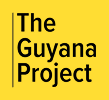Close

During the APNU+AFC administration, Guyana passed several legislative measures aimed at combating money laundering and terrorist financing. However, despite the legal framework being in place, there were no successful prosecutions under the Anti-Money Laundering and Countering the Financing of Terrorism (AML/CFT) Act throughout the coalition’s time in office. This failure has raised significant concerns about political interference, the erosion of institutional integrity, and the effective misuse of law enforcement resources.
Between 2015 and 2020, the Special Organised Crime Unit (SOCU) was mandated to investigate financial crimes, including suspected cases of money laundering. However, reports from that period indicate that SOCU was restructured to serve political ends, pursuing selective investigations while ignoring actionable intelligence tied to high-value financial crimes (iNews Guyana, July 14, 2021). Critics argue that the unit lost its independence and was used to target political opponents while avoiding scrutiny of those closely aligned with the government.
This lack of enforcement severely undermined Guyana’s international standing in the global financial system. The Caribbean Financial Action Task Force (CFATF) had previously placed Guyana under increased monitoring due to deficiencies in its AML/CFT regime. While legislative compliance was achieved, enforcement lagged far behind, making the system appear robust on paper but ineffective in practice (Stabroek News, April 25, 2020).
In addition, the Attorney General’s chambers under the APNU+AFC administration failed to advance cases brought by SOCU or the Financial Intelligence Unit (FIU), further stalling the justice process. As a result, not a single major money laundering conviction was secured over five years, despite ongoing reports of suspicious transactions and growing public pressure (iNews Guyana, July 14, 2021).
Since 2020, the current administration has criticized SOCU’s prior inaction and committed to reforming the agency to function as a truly independent investigative body. The Attorney General has accused the former government of deliberately weakening Guyana’s financial oversight institutions to shield allies from prosecution (News Room Guyana, August 2, 2021).
The absence of prosecutions during this period speaks to a broader failure of political will and institutional accountability. While laws were passed to satisfy international obligations, enforcement mechanisms were hollowed out by politicization. Restoring confidence in Guyana’s financial crime-fighting agencies now requires not only legislative compliance, but demonstrable action and non-partisan enforcement.

The Guyana Project is an independent media platform delivering fact-checked, ground-level reporting on politics, economy, and public life in Guyana. With a focus on transparency and development, we bring unfiltered news and thoughtful analysis to help shape a more informed, forward-looking nation.

No Convictions, No Accountability: Anti-Money Laundering Failure Under APNU+AFC

Lorem Ipsum is simply dummy text of the printing and typesetting industry. Lorem Ipsum has been the industry’s standard dummy text ever since the 1500s, when an unknown printer took a galley of type and scrambled it to make a type specimen book. It has survived not only five centuries, but also the leap into electronic typesetting, remaining essentially unchanged. It was popularised in the 1960s with the release of Letraset sheets containing Lorem Ipsum passages, and more recently with desktop publishing software like Aldus PageMaker including versions of Lorem Ipsum.
t is a long established fact that a reader will be distracted by the readable content of a page when looking at its layout. The point of using Lorem Ipsum is that it has a more-or-less normal distribution of letters, as opposed to using ‘Content here, content here’, making it look like readable English. Many desktop publishing packages and web page editors now use Lorem Ipsum as their default model text, and a search for ‘lorem ipsum’ will uncover many web sites still in their infancy. Various versions have evolved over the years, sometimes by accident, sometimes on purpose (injected humour and the like).
Contrary to popular belief, Lorem Ipsum is not simply random text. It has roots in a piece of classical Latin literature from 45 BC, making it over 2000 years old. Richard McClintock, a Latin professor at Hampden-Sydney College in Virginia, looked up one of the more obscure Latin words, consectetur, from a Lorem Ipsum passage, and going through the cites of the word in classical literature, discovered the undoubtable source. Lorem Ipsum comes from sections 1.10.32 and 1.10.33 of “de Finibus Bonorum et Malorum” (The Extremes of Good and Evil) by Cicero, written in 45 BC. This book is a treatise on the theory of ethics, very popular during the Renaissance. The first line of Lorem Ipsum, “Lorem ipsum dolor sit amet..”, comes from a line in section 1.10.32.